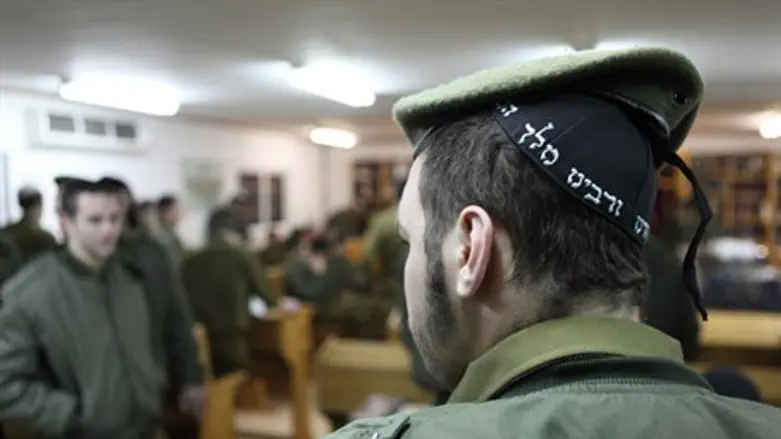
The hareidi draft is here to stay, the State Attorney's Office stated Monday - after petitions were filed against the law to the High Court of Justice.
The Equal Burden of Service law, which ended the blanket exemption of hareidi yeshiva students from the IDF, was ratified earlier this year.
But three petitions claim that the law is "unconstitutional" in that it "coerces" yeshiva students - men of conscription age who learn Torah full-time - to share in the mandatory draft, for the first time in Israel's post-independence history.
On Monday, the SAO rebutted this claim - noting that the law will remain the same until further notice.
"We will avoid declaring the amendment void at this time," it said. "Beforehand, we will investigate the complex and multifaceted framework in which this arrangement was implemented."
The decision is less of a legal issue than a political issue, it explained.
"At this point, the country is at a crossroads when it comes to the issue of equality in the burden of service," the SAO noted, adding that Israel's legislative system is looking for "broad maneuvering space" regarding the specific implementations of the new law.
The Attorney's Office added that the law gives preference to those who will not feel "coerced" into serving in the IDF, but stressed as well that it encourages all "yeshiva students to perform some form of meaningful national service" in lieu of the mandatory draft.
"The state's position is that all legal mechanisms, both during the adjustment period, and after the transition is made permanent, must follow legally established means of achieving certain goals," it concluded. "In light of the above, it is clear that the success of this process [depends on] the absence of coercion - and that the government is working on all fronts [to avoid this] as described - and that it is bound to make drastic changes in Israeli society."
"Under these circumstances, even if the amendment is not entirely devoid of difficulties, then the background of all the above position of the state is constitutional, and therefore there is no basis for judicial intervention for the amendment in question," it continued. "At the very least, the state's position is that it has avoided declaring void the amendment at this time, before we look at how the implementation of the arrangements is anchored in this complex and multifaceted [legal and societal - ed.] framework."
The SAO, in addition, requested that the High Court ignore further petitions until the terms are clarified.
The Equal Burden of Service Law's ratification sparked a social and legal circus over what some claimed constituted "anti-religious" sentiments behind the law.
While several hareidi community leaders have continued to discourage its members from conscription - and have even encouraged draft-dodging - it is as yet unclear what effect the law has had.
Some figures note hareidi IDF conscription has increased 39% in the past several months, while others claim an overall decline in the number of conscripts.